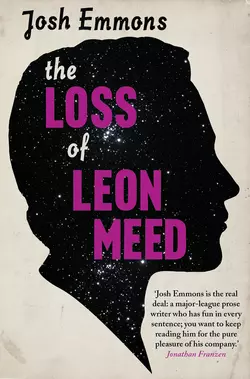The Loss of Leon Meed

Josh Emmons
Тип: электронная книга
Жанр: Современная зарубежная литература
Язык: на английском языке
Стоимость: 308.29 ₽
Статус: В продаже
Издательство: HarperCollins
Дата публикации: 16.04.2024
Отзывы: Пока нет Добавить отзыв
О книге: ‘Josh Emmons is the real deal: a major league prose writer who has fun in every sentence; you want to keep reading him for the pure pleasure of his company’ Jonathan FranzenOver the course of one December, ten residents of Eureka, California, are brought together by a mysterious man, Leon Meed, who repeatedly and inexplicably appears – in the ocean, at a local music club, clinging to the roof of a barrelling truck, standing in the middle of Main Street’s oncoming traffic – and then, as if by magic, disappears.Each witness to these bewildering events – young and old, married and single, punk and evangelical, black, white and Korean – interprets them differently, yet all of their lives are irrevocably changed. Over time, these ten characters, previously only tenuously connected, form a strange community of shared experience.Highly original and brilliantly written, Josh Emmons’s award-winning debut is a mystery, a love story and something else entirely.